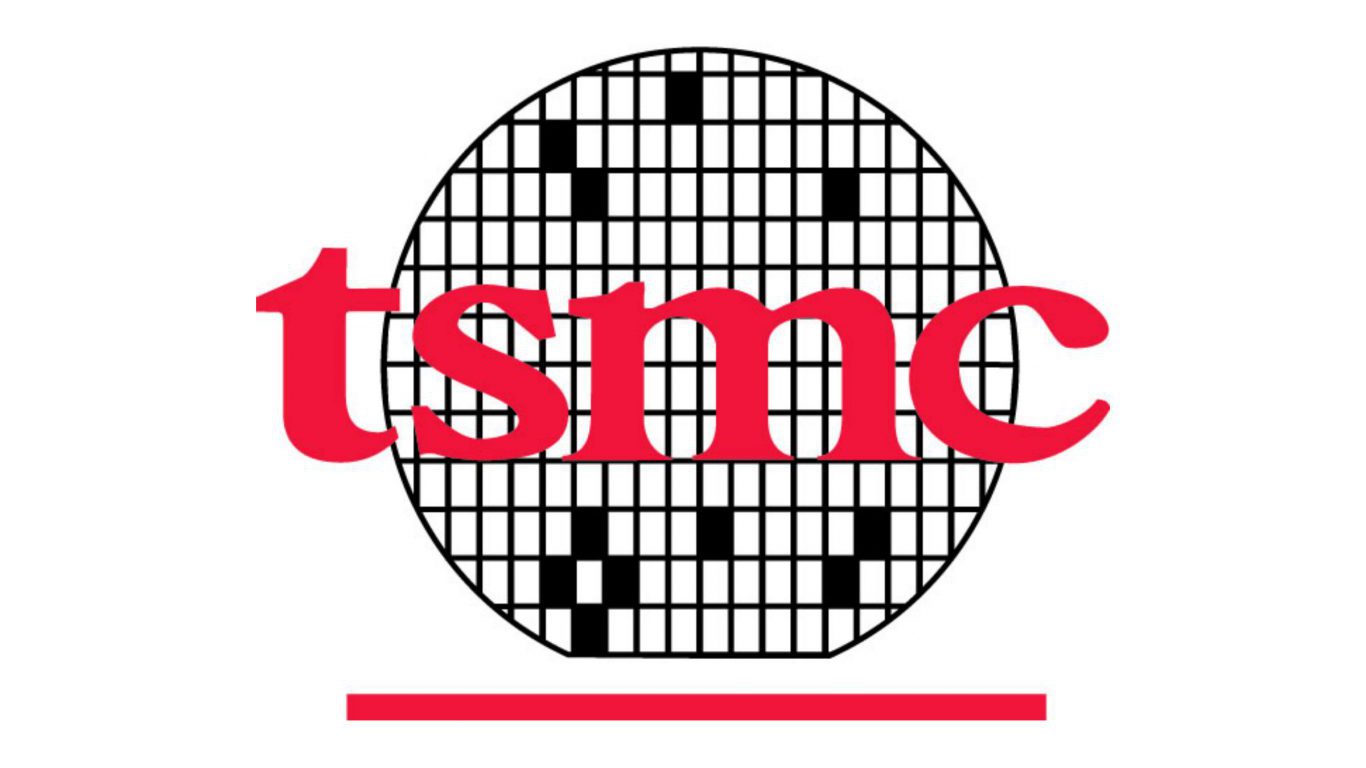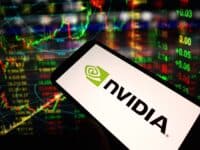
The world’s largest computer chip fabricator, Taiwan Semiconductor Manufacturing Company Ltd. (NYSE: TSM), reported third-quarter earnings Thursday morning that topped expectations, both for earnings per share and revenues. TSMC, as its known, posted earnings per American depositary share (ADS) of $0.90, well above the consensus estimate of $0.77. Revenue of $12.14 billion blew past the consensus estimate of $11.51 billion. Each ADS is equal to five shares of TSMC’s common stock trading on the Taiwan exchange.
Third-quarter revenues rose by nearly 22% year over year, and earnings rose by 36%. Sequentially, revenue rose by nearly 15% and earnings were up nearly 14%.
Investors’ reaction was muted, sending ADSs up less than 1% early Thursday, perhaps because the company was expected to post a bigger beat. Based on TSMC’s fourth-quarter outlook, investors will have to wait only three months to see even bigger numbers.
TSMC’s fourth-quarter revenue forecast calls for sales of $12.4 billion to $12.7 billion, well above current estimates of $11.5 billion. Gross profit margin is forecast at 51.5% to 53.5% (compared to an actual 53.4% in the third quarter) and operating margin is forecast at 40.5% to 42.5% (compared to 42.1% in the third quarter).
The company expects capital spending for 2020 in a range of $15 billion to $16 billion. That’s the same total as Chevron plans to spend this year. And TSMC is funding nearly all of its spending out of operating cash flow.
In 2019, TSMC named 14 firms to its list of outstanding suppliers. Three U.S.-traded firms were acknowledged for their technical collaboration: Applied Materials Inc. (NASDAQ: AMAT), ASML Holdings N.V. (NASDAQ: ASML) and Lam Research Corp. (NASDAQ: LRCX).
Applied Materials makes and sells a variety of manufacturing systems used to make semiconductor chips. More than half the company’s sales are to chip fabs, with the remaining 44% divided equally between memory chip and flash memory makers.
ASML is based in the Netherlands and is the largest company by market cap among the semiconductor equipment makers.
Lam Research makes products used in thin film deposition, plasma etch, photoresist strip and wafer cleaning in the semiconductor manufacturing process.
Over the past 12 months, TSMC stock has risen nearly 82%, while Lam Research shares are up over 61%, ASML stock is up more than 53% and Applied Materials stock is up about 25%.
Here’s a look at TSMC’s top U.S.-traded customers: Advanced Micro Devices Inc. (NASDAQ: AMD), Apple Inc. (NASDAQ: AAPL), Intel Corp. (NASDAQ: INTC), Nvidia Corp. (NASDAQ: NVDA) and Qualcomm Corp. (NASDAQ: QCOM).
As of June 30, the company’s 10 largest companies accounted for 78% of receivables. TSMC does not identify its top customers by name, but in 2019 its top customer accounted for 23% of its revenue and its second-best customer accounted for 14% of revenue. It’s a solid bet that AMD, Apple and Nvidia are the top three, probably in that order.
That may change next year. Intel has reportedly ordered 180,000 wafers from TSMC due to Intel’s inability to get its 7nm process up and running acceptably. Apple’s new iPhone 12 models all use the company’s own A14 chip, a 5nm device that TSMC makes for the Cupertino giant. Nvidia also has reportedly booked a large share of TSMC’s 5nm production in 2021.
Over the past 12 months, Nvidia stock is up more than 200%, AMD stock is up about 175% and Apple stock is up more than 107%. These are all better than TSMC’s 82% increase. Qualcomm shares have gained 75% over the same period, while Intel stock trails by a wide margin with a gain of just 6% over the past 12 months.
The chip market is booming. According to industry group Semiconductor Industry Association, global chip sales rose by nearly 5% year over year in August, the seventh consecutive month of rising sales. Sales in the Americas rose by nearly 24% year over year but by only 2.6% month over month. Much of this increase is due to consumer demand for electronics to help get their families through the restrictions and closings caused by the COVID-19 pandemic.
It may be worth a glance back at TSMC’s gross margin in the third quarter of 53.4%. That’s higher than Apple’s gross margin of 38% for the quarter or AMD’s second-quarter margin of 44%. Only Nvidia, with a gross margin of around 59%, and Qualcomm (57.5%) top TSMC, although Intel comes close with a gross margin of 53.3%.
About the only reason TSMC shares don’t move higher, faster has to be its strained relationship with mainland China. Recent saber-rattling in the South China Sea has China showing off its naval might and the United States seeking a large sale of arms to Taiwan.
The only other possible drag could be an expected loss of business when the coronavirus pandemic is brought under control and demand for electronics gear drops again. Are there any qualms about growth at Apple, Nvidia or AMD? If there aren’t, then investors might want to take a closer look at TSMC.
In any event, after a stellar quarterly report and a buoyant outlook for the current quarter, TSMC’s ADSs traded essentially flat late Thursday morning at $88.62, in a 52-week range of $42.70 to $91.27. The consensus price target on the stock is $77.27, implying that the stock is already overvalued. It trades at about 30.5 times estimated 2020 earnings and about 28.2 times estimated 2021 earnings.
Essential Tips for Investing: Sponsored
A financial advisor can help you understand the advantages and disadvantages of investment properties. Finding a qualified financial advisor doesn’t have to be hard. SmartAsset’s free tool matches you with up to three financial advisors who serve your area, and you can interview your advisor matches at no cost to decide which one is right for you. If you’re ready to find an advisor who can help you achieve your financial goals, get started now.
Investing in real estate can diversify your portfolio. But expanding your horizons may add additional costs. If you’re an investor looking to minimize expenses, consider checking out online brokerages. They often offer low investment fees, helping you maximize your profit.
Thank you for reading! Have some feedback for us?
Contact the 24/7 Wall St. editorial team.
 24/7 Wall St.
24/7 Wall St.


